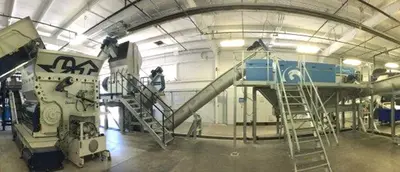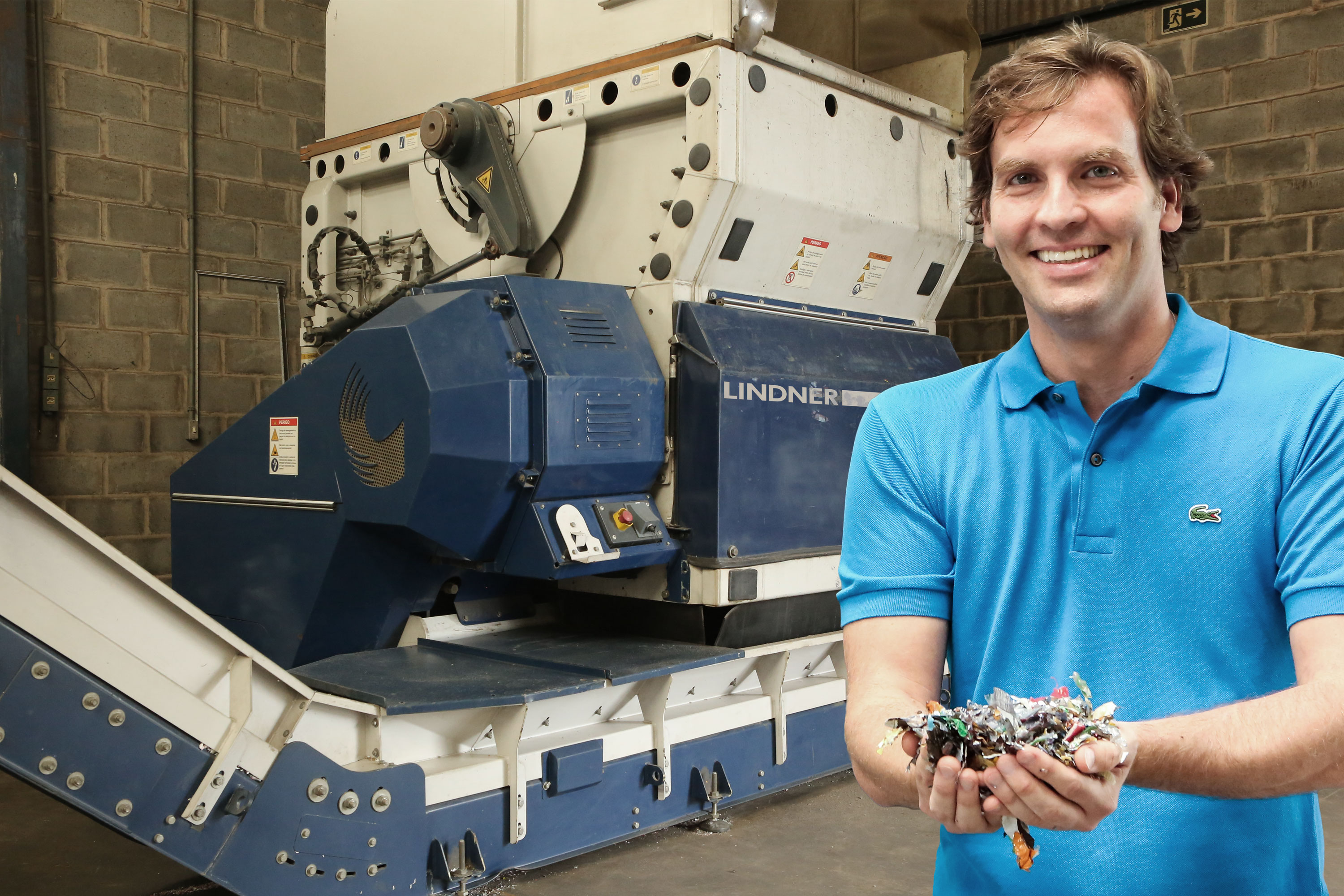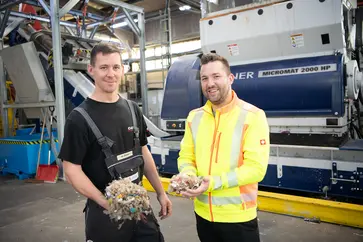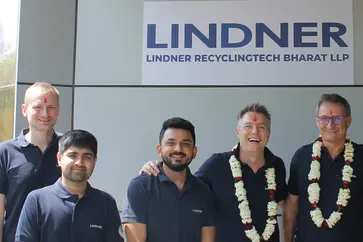Tucker, GA/USA, March 2017 – Poly-Wood (www.polywoodinc.com), based in Syracuse, IN/USA, a leading manufacturer of outdoor furniture made from recycled HDPE, is now also a highly efficient plastics recycler. At its production centre, Poly-Wood operates one of the most modern recycling plants for HDPE with systems from Lindner washTech (www.lindner-washtech.com). At the heart of the plant is a combination of shredders and wash components specifically customized by Lindner for this particular application.
The starting material is post-consumer HDPE material, primarily in the form of empty but uncleaned non-returnable milk containers. The Lindner systems convert this waste into flakes as an ideal input material for the recycling process in terms of purity, residual moisture and particle size.
Focus on sustainability and efficiency
Chad Rassi, Process Engineer at Poly-Wood, says: "We had the fortune of planning our recycling plant from scratch. The key aspect here was to ensure a high level of sustainability through the particularly efficient use of water, heating and energy power, as well as low-maintenance operation, maintenance-friendly design and a high nominal throughput in long-term operation. We wanted to achieve outstanding cost efficiency so as to make the recycling of plastics a success for us both technically and economically."
Lindner reSource America LLC, the US branch of German company Lindner washTech, then offered Poly-Wood to tailor a complete washing line including all supply lines for the recycling of the non-returnable milk bottles. Rassi continued: "We finally accepted this offer because Lindner had really got to grips with our project and familiarised itself so intensively with our work that it was able to come up with the best possible solution at every stage. The company's regular presence on the site, the expertise of its representatives, and the personal trust we built up with them was just as convincing for us as the excellent reputation of this manufacturer's products."
Made-to-measure shredding, perfect cleaning and drying
Chad Rassi, Process Engineer at Poly-Wood, says: "We had the fortune of planning our recycling plant from scratch. The key aspect here was to ensure a high level of sustainability through the particularly efficient use of water, heating and energy power, as well as low-maintenance operation, maintenance-friendly design and a high nominal throughput in long-term operation. We wanted to achieve outstanding cost efficiency so as to make the recycling of plastics a success for us both technically and economically."
Lindner reSource America LLC, the US branch of German company Lindner washTech, then offered Poly-Wood to tailor a complete washing line including all supply lines for the recycling of the non-returnable milk bottles. Rassi continued: "We finally accepted this offer because Lindner had really got to grips with our project and familiarised itself so intensively with our work that it was able to come up with the best possible solution at every stage. The company's regular presence on the site, the expertise of its representatives, and the personal trust we built up with them was just as convincing for us as the excellent reputation of this manufacturer's products."
Experience brings rapid success
Tomas Kepka, Vice President of Lindner reSource America LLC, optimised the washing unit in close cooperation with Poly-Wood and Lindner washTech. He adds: "Two important factors provided us with the basis that enabled us to comply with Poly-Wood's requirements quickly and completely. Firstly, the Lindner systems have a modular structure. This enables us to meet a wide variety of different demands simply through the clever combination of standard and new components. Secondly, we benefit from our long-lasting cooperation with main suppliers of plastics recycling machineries. As a result, we are very familiar with their demands made on the input material for their recycling process. From this experience, we know without extensive preliminary trials how we must configure our systems to provide them with a clean, shredded and dried material optimised for these machines."
Rassi sums up: "In the meantime, we know that our decision to accept the offer from Lindner was absolutely correct. The complete system went in operation in September 2016 after a lead time of only six months. Water and energy consumption are even lower than expected and the performance and end product is outstanding!
More About
Waste Wood Fuel Lindner Micromat



